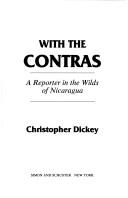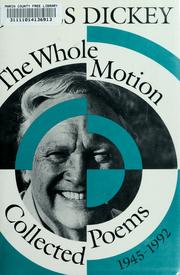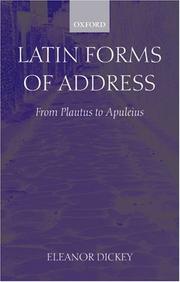| Listing 1 - 10 of 310 | << page >> |
Sort by
|
Book
ISBN: 9781108888387 9781108841009 9781108744683 1108744680 1108841007 1108888380 1108897347 Year: 2023 Publisher: Cambridge University Press
Abstract | Keywords | Export | Availability | Bookmark
 Loading...
Loading...Choose an application
- Reference Manager
- EndNote
- RefWorks (Direct export to RefWorks)
Why, when, and how did speakers of ancient Greek borrow words from Latin? Which words did they borrow? Who used Latin loanwords, and how? Who avoided them, and why? How many words were borrowed, and what kind of word? How long did the loanwords survive? Until now, attempts to answer such questions have been based on incomplete and often misleading evidence, but this study offers the first comprehensive collection of evidence from papyri, inscriptions, and literature from the fifth century bc to the sixth century ad. That collection - included in the book as a lexicon of Latin loanwords - is examined using insights from linguistic work on modern languages to provide new answers that often differ strikingly from earlier ones. The analysis is accessibly presented, and the lexicon offers a firm foundation for future work in this area.
Greek language --- Latin language --- Foreign words and phrases --- Latin. --- Influence on Greek. --- Latin --- Influence on Greek

ISBN: 0870232525 0870232533 Year: 1978 Publisher: Amherst University of Massachusetts Press
Abstract | Keywords | Export | Availability | Bookmark
 Loading...
Loading...Choose an application
- Reference Manager
- EndNote
- RefWorks (Direct export to RefWorks)

ISBN: 0385020651 Year: 1976 Publisher: Garden City Doubleday
Abstract | Keywords | Export | Availability | Bookmark
 Loading...
Loading...Choose an application
- Reference Manager
- EndNote
- RefWorks (Direct export to RefWorks)

ISBN: 9780195312928 0195312929 9780195312935 0195312937 0198042663 1281163759 9786611163754 0199886059 1435600983 9780198042662 9781435600980 6611163751 0197704263 9780199886050 Year: 2007 Volume: 7 Publisher: London: Oxford university press,
Abstract | Keywords | Export | Availability | Bookmark
 Loading...
Loading...Choose an application
- Reference Manager
- EndNote
- RefWorks (Direct export to RefWorks)
Providing information on various aspects of using and reading ancient scholarship, this book includes discussions of major works, explanation of grammarians' Greek, over 200 passages with commentary, and a glossary of 1500 grammatical terms.
Greek philology --- Scholia. --- Greek literature --- Transmission of texts. --- Philologie grecque --- Scolies --- Littérature grecque --- Transmission de textes --- History. --- Criticism, Textual. --- Histoire --- Critique textuelle --- Greece --- Grèce --- Civilization. --- Civilisation --- Scholia --- Transmission of texts --- History --- Criticism, Textual --- Civilization --- Littérature grecque --- Grèce --- Literary transmission --- Manuscript transmission --- Textual transmission --- Editions --- Manuscripts --- Criticism --- Philology --- Classical philology --- Greek language --- Greek philology - History --- Greek literature - Criticism, Textual --- Greece - Civilization

ISBN: 0671532987 Year: 1985 Publisher: New York : Simon and Schuster,
Abstract | Keywords | Export | Availability | Bookmark
 Loading...
Loading...Choose an application
- Reference Manager
- EndNote
- RefWorks (Direct export to RefWorks)
Dickey, Christopher. --- United States --- Nicaragua --- Etats-Unis --- Military relations --- Politics and government --- Foreign relations --- Politique et gouvernement --- Relations extérieures --- 972.85 --- Geschiedenis van Nicaragua --- Dickey, Christopher --- -Nicaragua --- -United States --- -Military relations --- -Politics and government --- -Foreign relations --- -972.85 --- 972.85 Geschiedenis van Nicaragua --- -Dickey, Christopher. --- Relations extérieures --- -Nikaragua --- Nikaragoua --- República de Nicaragua --- Republic of Nicaragua --- U.S.A. --- Jungtinės Amerikos valstybės --- Soedinennye Shtaty Si︠e︡vernoĭ Ameriki --- Soedinennye Shtaty Severnoĭ Ameriki --- Si︠e︡vero-Amerikanskīe Soedinennye Shtaty --- Severo-Amerikanskie Soedinennye Shtaty --- Zlucheni Derz︠h︡avy --- USA --- US --- Arhab --- Ar. ha-B. --- Artsot ha-Berit --- ولايات المتحدة الامريكية --- Wilāyāt al-Muttaḥidah al-Amirīkīyah --- ABSh --- Amerika Birlăshmish Shtatlary --- ABŞ --- Amerika Birlăşmi Ştatları --- Forente stater --- Spojené staty americké --- Severo-Amerikanskie Shtaty --- Sjedinjene Američke Države --- Zʹi︠e︡dnani Derz︠h︡avy Ameryky --- Amerikai Egyesült Államok --- Yhdysvallat --- Verenigde Staten --- Egyesült Államok --- Hiwsisayin Amerikayi Miatsʻeal Tērutʻiwnkʻ --- Estados Unidos de América --- United States of America --- Fareyniḳṭe Shṭaṭn --- Artzois Ha'bris --- Estados Unidos da América do Norte --- SShA --- Soedinennye Shtaty Ameriki --- VSA --- États-Unis d'Amérique --- Vereinigte Staaten von Amerika --- Stati Uniti d'America --- Estados Unidos --- EE.UU. --- Stany Zjednoczone --- ĒPA --- Amerika Qūrama Shtattary --- Amerika Qŭshma Shtatlari --- SAD --- Saharat ʻAmērikā --- Hēnomenai Politeiai Amerikēs --- ZSA --- Mei-kuo --- Meiguo --- Mei guo --- ZDA --- Združene države Amerike --- U.S. --- America (Republic) --- Amirika Carékat --- Verenigde State van Amerika --- VS --- ولايات المتحدة --- Wilāyāt al-Muttaḥidah --- ولايات المتّحدة الأمريكيّة --- Wilāyāt al-Muttaḥidah al-Amrīkīyah --- Estatos Unitos --- Estatos Unitos d'America --- Ètats-Unis d'Amèrica --- Estaos Xuníos d'América --- Estaos Xuníos --- Tetã peteĩ reko Amérikagua --- Istadus Unidus --- Amerika Birlăşmiş Ştatları --- Amerika ka Kelenyalen Jamanaw --- Bí-kok --- Amerika Qushma Shtattary --- AQSh --- Злучаныя Штаты Амерыкі --- Zluchanyi︠a︡ Shtaty Ameryki --- Yunaeted Stet blong Amerika --- Yunaeted Stet --- Vaeinigte Staatn --- Vaeinigte Staatn vo Amerika --- Stadoù-Unanet Amerika --- Sŭedineni amerikanski shtati --- САЩ --- SASht --- Съединените щати --- Sŭedinenite shtati --- Америка (Republic) --- Amerika (Republic) --- Estats Units d'Amèrica --- Америкӑри Пӗрлешӳллӗ Штатсем --- Amerikări Pĕrleshu̇llĕ Shtatsem --- Stati Uniti --- SUA (Stati Uniti d'America) --- Unol Daleithiau America --- Unol Daleithiau --- Amerikas Forenede Stater --- Vereinigte Staaten --- Wááshindoon Bikéyah Ałhidadiidzooígíí --- Zjadnośone staty Ameriki --- Ameerika Ühendriigid --- Ηνωμένες Πολιτείες της Αμερικής --- Hēnōmenes Politeies tēs Amerikēs --- Η.Π.Α. --- Ē.P.A. --- Usono --- Unuiĝintaj Ŝtatoj de Ameriko --- Американь Вейтьсэндявкс Штаттнэ --- Amerikanʹ Veĭtʹsėndi︠a︡vks Shtattnė --- Ameriketako Estatu Batuak --- Feriene Steaten --- Feriene Steaten fan Amearika --- FS --- Stâts Unîts di Americhe --- Stâts Unîts --- Stáit Aontaithe Mheiriceá --- Steatyn Unnaneysit America --- Steatyn Unnaneysit --- S.U.A. --- Na Stàitean Aonaichte --- NSA --- Mî-koet --- 미국 --- Miguk --- Amerikayi Miatsʻyal Nahangner --- Miatsʻyal Nahangner --- Nikaragua --- Central America (Federal Republic) --- Американь Вейтьсэндявкс Штаттнэ --- Spojené obce severoamerické --- États-Unis --- É.-U. --- ÉU
Book
ISBN: 9781107474574 1107474574 9781107093607 1107093600 9781316145265 1316371670 1316145263 Year: 2016 Publisher: Cambridge: Cambridge university press,
Abstract | Keywords | Export | Availability | Bookmark
 Loading...
Loading...Choose an application
- Reference Manager
- EndNote
- RefWorks (Direct export to RefWorks)
"What did Greek speakers in the Roman empire do when they wanted to learn Latin? They used Latin-learning materials containing authentic, enjoyable vignettes about daily life in the ancient world - shopping, banking, going to the baths, having fights, being scolded, making excuses - very much like the dialogues in some of today's foreign-language textbooks. These stories provide priceless insight into daily life in the Roman empire, as well as into how Latin was learned at that period, and they were all written by Romans in Latin that was designed to be easy for beginners to understand. Learners also used special beginners' versions of great Latin authors including Virgil and Cicero, and dictionaries, grammars, texts in Greek transliteration, etc. All these materials are now available for the first time to today's students, in a book designed to complement modern textbooks and enrich the Latin-learning experience"--
Latin language --- Latin language, Colloquial --- Latin language. --- Latin language, Colloquial. --- Classical languages --- Italic languages and dialects --- Classical philology --- Latin philology --- Colloquial Latin --- Colloquial language --- Latin language, Vulgar --- Spoken Latin

ISBN: 0819571547 1283109875 9786613109873 0585373841 0819512184 0819522023 9780585373843 9780819571540 9780819522023 9780819512185 Year: 1992 Publisher: Hanover : Wesleyan University Press,
Abstract | Keywords | Export | Availability | Bookmark
 Loading...
Loading...Choose an application
- Reference Manager
- EndNote
- RefWorks (Direct export to RefWorks)
Documentation of the development of a major literary figure.
Poetry, Modern --- Poetry --- American poetry --- American literature
Book
ISBN: 9781316627280 9781107176805 1107176808 1316627284 Year: 2017 Publisher: Cambridge ; New York, NY : Cambridge University Press,
Abstract | Keywords | Export | Availability | Bookmark
 Loading...
Loading...Choose an application
- Reference Manager
- EndNote
- RefWorks (Direct export to RefWorks)
What did Roman children do first when they arrived at school in the morning? What excuse for missing school could be counted on to stave off a whipping from the teacher? What did a Roman banker do when someone came to borrow money? What did a Roman wife say when her husband came home drunk? The answers to such questions can be found not in mainstream ancient literature (whose writers had their minds on higher things) but in language textbooks for ancient Latin learners. These 'colloquia' offer an ancient introduction to Roman culture, covering such areas as shopping, banking, bathing, dining, arguing, and going to school; recently rediscovered, they are here presented for the first time in a format aimed at readers with no prior knowledge of Latin, Greek, or the ancient world. They come complete with introductory material, extensive illustrations, and a full explanation of their fascinating history.
Conduct of life --- Rome --- Social life and customs. --- Conduct of life. --- Manners and customs. --- Rome (Empire). --- Rim --- Roman Empire --- Roman Republic (510-30 B.C.) --- Romi (Empire) --- Social life and customs --- Byzantine Empire --- Rome (Italy)

ISBN: 9780199239054 0199242879 9780199242870 0199239053 9786610446544 1281341673 9786611341671 1280446544 0191553913 9780191553912 9781281341679 1383037760 Year: 2002 Publisher: Oxford : Oxford university press,
Abstract | Keywords | Export | Availability | Bookmark
 Loading...
Loading...Choose an application
- Reference Manager
- EndNote
- RefWorks (Direct export to RefWorks)
How did Romans address their children, their parents, their slaves and their patrons? This text questions a body of addresses spanning four centuries and drawn from a variety of sources.
Latin language --- Social interaction --- Forms of address --- Names, Personal --- Names, Latin --- Address, Forms of --- Social aspects --- Names, Latin. --- Address, Forms of. --- Human interaction --- Interaction, Social --- Symbolic interaction --- Exchange theory (Sociology) --- Psychology --- Social psychology --- Latin names --- Classical languages --- Italic languages and dialects --- Classical philology --- Latin philology --- Address, Titles of --- Titles of address --- Letter writing --- Salutations --- Titles of honor and nobility --- Names --- Latin language - Address, Forms of. --- Latin language - Social aspects - Rome. --- Social interaction - Rome. --- Forms of address - Rome. --- Names, Personal - Rome. --- Latin language - Address, Forms of --- Latin language - Social aspects - Rome --- Social interaction - Rome --- Forms of address - Rome --- Names, Personal - Rome --- Social aspects.
Multi
ISBN: 9781107065390 9781107020108 9781107085084 1107020107 1107065399 9781139096706 9781107588295 9781107659858 1139096702 9781107345393 1107345391 9781107341647 1107341647 9781299841987 1299841988 1107357519 1107231256 1107347890 110734414X 1316191338 1107588294 Year: 2015 Volume: 49 Publisher: New York: Cambridge university press,
Abstract | Keywords | Export | Availability | Bookmark
 Loading...
Loading...Choose an application
- Reference Manager
- EndNote
- RefWorks (Direct export to RefWorks)
The Colloquia are manuals written to help ancient Greeks and Romans get around in each other's languages; they contain examples of how to conduct activities like shopping, banking, visiting friends, hosting parties, taking oaths, winning lawsuits, using the public baths, having fights, making excuses and going to school. They thus offer a unique glimpse of daily life in the Early Roman Empire and are an important resource for understanding ancient culture. They have, however, been unjustly neglected because until now there has not been any modern editions of the texts, no translations into any modern language, and little understanding of what the Colloquia are and where they come from. This book makes the Colloquia accessible for the first time by combining a new edition, translation and commentary with a ground-breaking, comprehensive study of their origins. It is clearly written and will interest students, non-specialists and professional scholars alike.
Pseudo-Dositheus --- Pseudo-Dositheus. --- Dositheus, --- Greek language --- Latin language --- Grammar --- Classical Greek language --- Classical Latin language --- Grammar. --- Rome --- Social life and customs --- Arts and Humanities --- History --- Latin language - Grammar - Early works to 1500 --- Greek language - Grammar - Early works to 1500 --- Rome - Social life and customs - Early works to 1800
| Listing 1 - 10 of 310 | << page >> |
Sort by
|

 Search
Search Feedback
Feedback About UniCat
About UniCat  Help
Help News
News